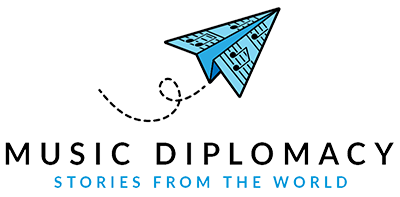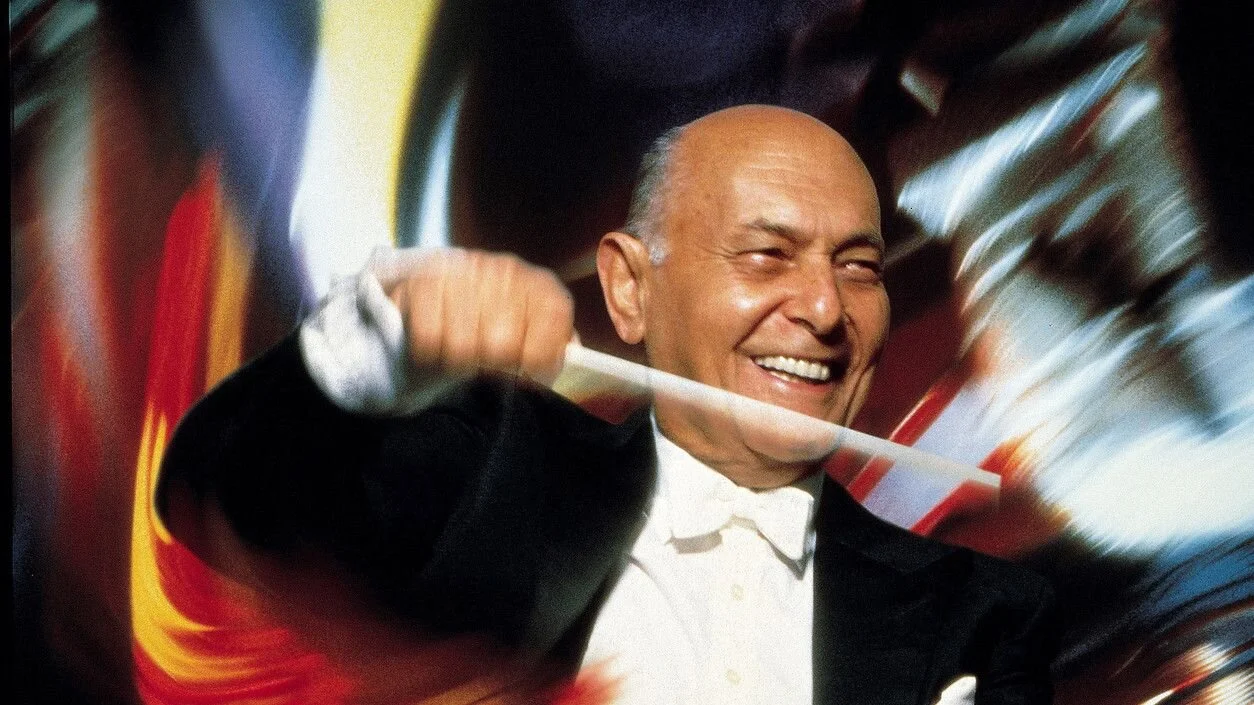The World Orchestra for Peace
Sir Georg Solti, Founder of the World Orchestra for Peace
I am happy to send this contribution for the opening of this blog powered by EMMA for Peace, albeit at a time of such uncertainty for the performing arts and artists everywhere. Perhaps it will give some cheer and a feeling of hope to musicians everywhere, to know that players from over 60 orchestras in 35 countries – and their conductor Valery Gergiev – stand ready to re-gather as the World Orchestra for Peace for the three concerts originally planned to celebrate its 25th anniversary this year. It is perhaps a touching quirk of fate that these should happen in two of the places most heavily hit by COVID19 – at the Merano Festival in the north of Italy and at the United Nations’ General Assembly in New York. But we are no strangers to crisis (CLICK HERE for the BBC Arts report or WATCH HERE for WOP's Paris tribute at UNESCO less than 36 hours after the terrorist attacks in November 2015).
The World Orchestra for Peace is unique, its players being the very finest, drawn from leading orchestras around the world, who give their services and come together to demonstrate — in the words of its founder, Sir Georg Solti — “the unique strength of music as an ambassador for peace”. It was formed by Solti for a special concert in Geneva to mark the 50th anniversary of the United Nations in 1995. The UN Secretary-General, Boutros Boutros-Ghali had invited Solti to direct the concert and to choose whichever orchestra he wished to perform. After careful thought, Solti proposed the idea of a hand-picked ensemble in which the finest individual players would come together from orchestras all over the world, to make a unique demonstration for peace.
Documentary 'Solti's Vision' - the story of the unique World Orchestra for Peace (part I)
Documentary 'Solti's Vision' - the story of the unique World Orchestra for Peace (part II)
Since Solti’s death in 1997, I have reassembled it, having invited Valery Gergiev to conduct it; for the opening concert of the new Festspielhaus in Baden-Baden in 1998 and for 22 of its 25 concerts since then. These have included BBC Proms appearances in 2000 (marking the 60th anniversary of the commencement of the WW2 Blitz) and 2005 (as part of its first tour to Germany, Russia and China on the 60th anniversary of the cessation of hostilities of WW2). In 2003 the Orchestra performed for the first time in Russia, giving a concert in St. Petersburg marking the 300th anniversary of its founding and one in Moscow for the Easter Festival, on either side of Russia’s annual peace holiday.
Valery Gergiev and Lady Solti accompany the World Orchestra for Peace as they gather at the Cenotaph, Whitehall on the 96th anniversary of the start of World War 1 on August 4, 2010 in London, England (Ian Gavan/Getty Images Europe).
In 2010 the orchestra celebrated its 15th anniversary with two concerts – for the BBC Proms and for the Salzburg Festival on the 90th anniversary of its founding in 1920 as a peace offering after WW1. Marking the 150th birthday of Gustav Mahler, they performed his Symphonies Nos. 4 and 5 – and together with a short documentary film about the Orchestra these were released on DVD by C Major Productions and UNITEL. Further concerts for peace have since been given in Rotterdam, Brussels, Budapest, Jerusalem, Krakow, Stockholm, Abu Dhabi, New York, Chicago and London. To mark the centennial in 2018 of the Armistice ending WW1, Donald Runnicles conducted performances at the BBC Proms in London and at Würth/Künzelsau in Germany of Beethoven’s 9th Symphony – and Sir Karl Jenkins his Armed Man Mass for Peace in Berlin.
In recognition of its work to encourage peace through multi-cultural dialogue and understanding, the World Orchestra for Peace was designated UNESCO Artist for Peace – the first major symphony orchestra to receive this honour, with the citation presented by Irina Bokova, Director-General of UNESCO on the day of its BBC Prom at the Royal Albert Hall in London in August 2010.
Irina Bokova, Director-General of UNESCO, presents the designation UNESCO Artist for Peace to Charles Kaye and the World Orchestra for Peace in the presence of Maestro Valery Gergiev at the Royal Albert Hall London on 5th August 2010. ©BBC/WOP
So now we are waiting and praying – that the scars of COVID19 around the world will heal in the months ahead – in time for us to progress the detailed planning towards our concerts in Meran and New York – and continue our Founder’s mission for peace and global diplomacy through music.
Charles Kaye
Director and Co-Founder, World Orchestra for Peace










